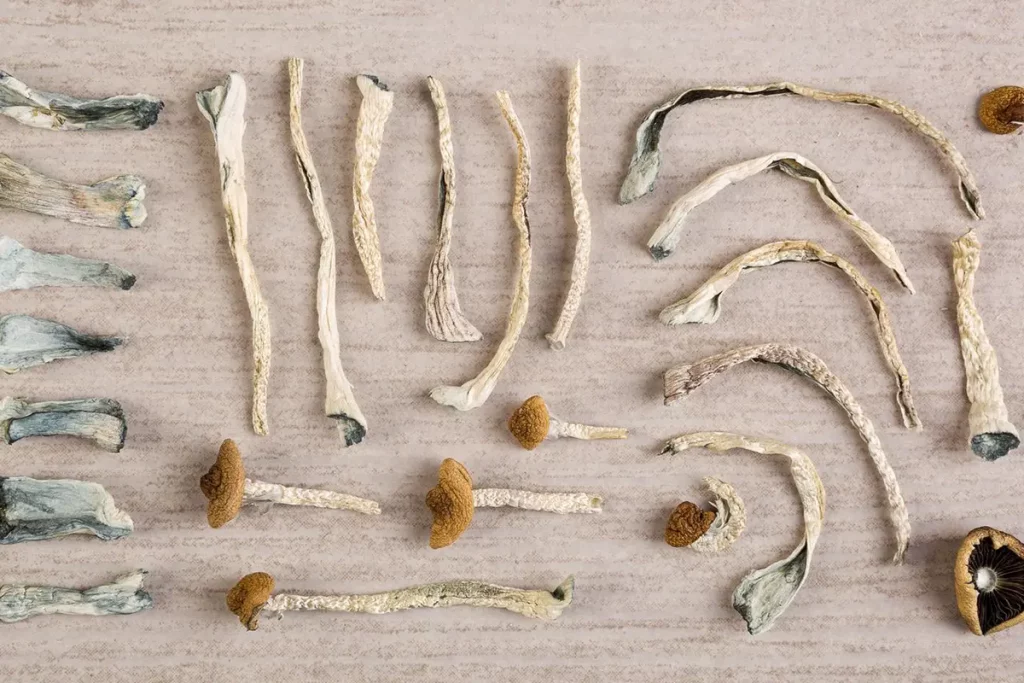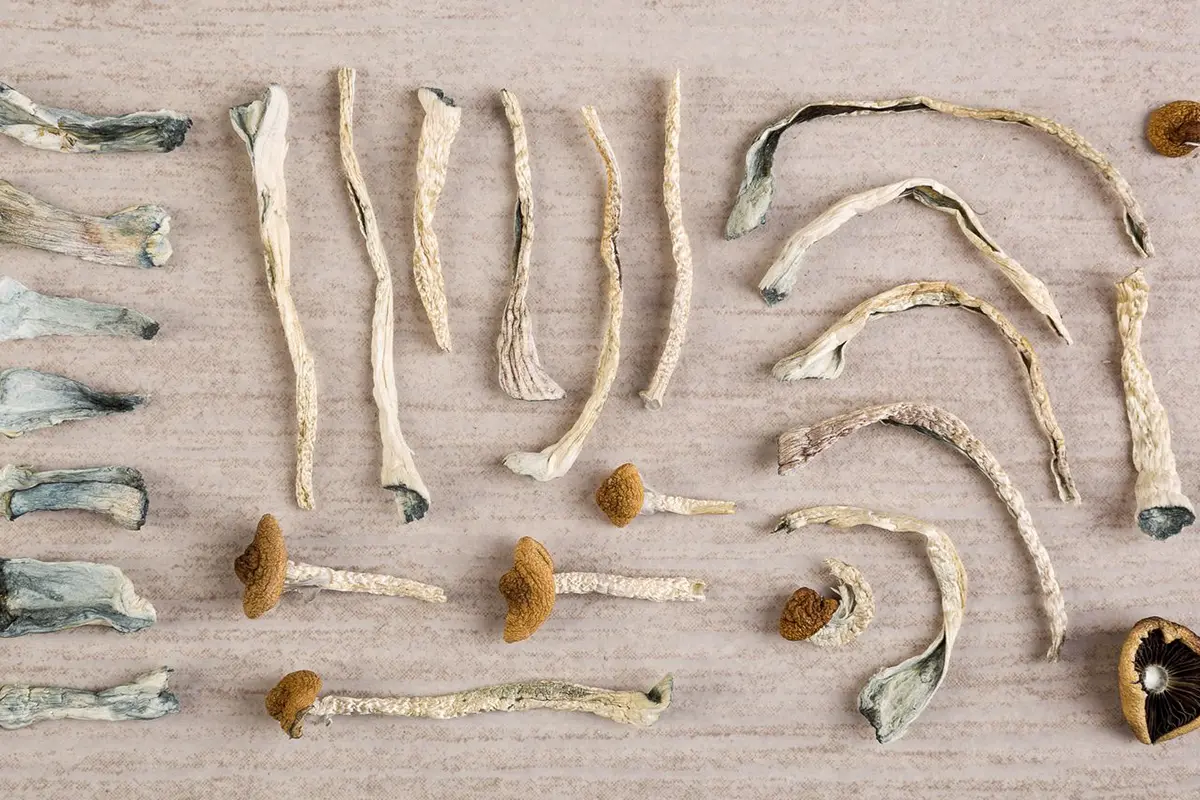After Adderall: increasing productivity through psychedelic substances in daily intakes, Madison Margolin’s report
Microdosing is a widespread practice that involves taking different drugs in smaller amounts than the usual dose. In the article there will be a focus on the use of psychedelic mushrooms, but LSD or stronger substances such as mescaline or DMT are also utilized. The practice is to take one-twentieth to one-tenth of the usual consumption but to do so in an ongoing manner.
One starts with the minimum amount and then implements it according to the effects experienced and desired. A few years ago, it was discovered how the consumption of Adderall was widespread among students, athletes, and workers to improve their ability to concentrate and function. Although the drug was prescribed for conditions such as attention disorders, it was often used among those who felt the need to boost their performance.
Microdosing, on the other hand, aims to increase the benefits of consuming the substance while minimizing its risks, which, however, also exist here. The methodology of intake can vary, explains Madison Margolin, consultant and expert on psychedelics, it can be every day as it can be a few times a week.
The thin line between hallucination and boost
The common micro dose is between an average of 0.1 and 0.3 grams of dried mushrooms. People can consume the mushroom directly as well as products containing them to have a chance of micro dosing. Staying within these doses usually makes sure that one does not get to hallucinate, but the boosts one is looking for in this practice.
It is often recommended to start with a minimal dose and then gradually increase to a stable dose that does not involve side effects. These are to be sought more at the psychological level than at the physical one, in fact the risk of taking too high a dose is that of perceiving everything in an amplified way.
Negative emotions can take over in these cases delivering anxiety and neurotic states. Therefore, it is enough to understand the dose tolerated by the body to instead benefit from the feeling of greater participation that many consumers describe.
Spread of micro dosing usage and desired effects
The dosage makes it possible to achieve effects that on the short term are almost imperceptible, but become apparent on long-term intake. According to Margolin, the reason for the widespread practice of microdosing lies in people’s need to find alternatives to traditional treatments. Thus going beyond the idea of getting high with traditional doses of consumption to experience benefits over time.
«Like CBD in the cannabis industry, people are looking for effective alternatives to daily pharmaceutical medications, without necessarily getting high. I often like to say that microdosing is the CBD of psychedelics», the author points out. The effects studied and aspired to include increased daily abilities, greater satisfaction with one’s life, and reduction of disorders such as anxiety or depression.
The main component of psychedelic mushrooms is psilocybin, a psychoactive. There are several strains of psilocybin mushrooms, in fact, in different forms, each carries its own potency, Margolin explains.
Contraindications and undesired effects
Like all drugs an error in dosage intake or each individual’s specific reaction can lead to unwanted effects. For example, use is not recommended if there is a history of previous illness. Those most at risk are those with problems related to blood pressure, circulation or heart, but also those with psychiatric or neurological diseases. It is not a magic formula, Margolin points out; there can be no generalization about microdosing, and the effects are very subjective.
Among the immediate sub perceptible effects for example, one could have an elevated feeling of these that makes the individual unable to handle them in the routine of his or her day. Then the expert also mentions the issue of overdosing and the opposite effect it might have, which is to cause anxiety in the person taking them. Simply, Margolin affirms, microdosing does not work for some people. «There is no magic bullet and everyone has a different reaction. No blanket statement can apply to microdosing as a whole, and the effects are very subjective», she concludes.

Scientific studies on mushrooms microdosing
The practice of microdosing psychedelic drugs has and is of interest to several scientific and medical studies. In particular, Margolin reports the research Self-blinding citizen science to explore psychedelic microdosing. The study published in March 2021 and implemented on 191 participants represented the largest placebo-controlled study of psychedelics conducted to date. The period examined is four weeks of dosing, and during this the psychological results of those microdosing improved, as did the placebo group with no difference between the two populations.
«Acute (emotional state, drug intensity, mood, energy, and creativity) and post-acute (anxiety) scales showed small, but significant microdose vs. placebo differences; however, these results can be explained by participants breaking blind. The findings suggest that anecdotal benefits of microdosing can be explained by the placebo effect», can be read in the research abstract. Additional significant studies cited by Margolin are those by Amanda Fielding, Robin Carhart-Harris, James Fadiman.
Medical application: from the past to the future
Among the researchers mentioned Carhart-Harris has done a specific study on the therapeutic potential of psychedelic drugs. His research starts from the past when some of these substances were administered for psychotherapeutic purposes for the treatment of mood disorders and alcohol dependence, the abstract states.
Research in this field then stopped in the Mid-Sixties due to prohibitive legislature and then resumed in the Nineties. With respect to these studies and those still in progress, Carhart-Harris focuses on psilocybin treatment in patients with depression, as does another research study of which Fielding is a part. The latter investigates indeed the safety and efficacy of psilocybin in patients with treatment-resistant unipolar depression.
An observed study of twelve patients, in this case, traced the pros and cons and of psilocybin administration. No severe or unexpected reactions occurred, the study explained, while depressive symptoms were significantly reduced one week after treatment with higher dose. Effects highlighted after the study also included marked and lasting improvements in anxiety and anhedonia.
When substances can constitute a legal problem
The issue of the legality of substances used for microdosing, and particularly in this case psilocybin, must also be addressed. With regard to the use of drugs, in fact, each state has its own degree of tolerance and legislation in this regard. So the use and spread of the phenomenon can be favored or hindered with respect to the different countries in which it occurs.
It must be understood that the issue of legality varies from territory to territory. In Oregon or Denver the active ingredient psilocybin is decriminalized and therefore practicing microdosing does not pose any problems, Margolin explains as an example. «This varies from locality to locality… In places that do not have decriminalization policies, possession of magic mushrooms can result in legal repercussions», she then points out.
A further step toward plant-based medicine
According to Margolin, mushroom microdosing and other practices are definitely representing a further step toward plant-based medicine. In particular, the expert says, people have a need to find alternatives to traditional medicine. Sometimes the latter, because it does not work, causes patients to lose the desire to pursue it as well as, she continues, often bringing on a number of side effects, even quite serious health impacts.
Through these modalities such as microdosing, people now seem to be moving away from what are today’s traditional synthetic pharmaceutical protocols. Indeed, the studies cited above highlight, and continue to lay the groundwork through new research, significant findings in particular with regard to pathologies related to the psychological aspect.
Improvements in depressive behaviors as well as in sleep quality, creativity and concentration are just some of the benefits found and often with an almost insignificant possibility of side effects.
Madison Margolin
Writer, consultant and educator that focuses her work on cannabis, psychedelics, Judaism, and spirituality, but also extends to culture, policy, science, agriculture, technology, and religion-at-large.



















